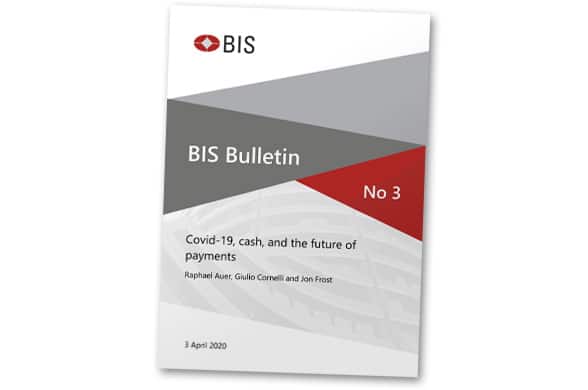
The pandemic may result in increased calls to defend the role of cash, moves towards more quickly introducing central bank digital currencies and a structural increase in the use of mobile, card and online payments, a Bank for International Settlements (BIS) research bulletin analysing the likely impact of Covid-19 says.
“Irrespective of whether concerns are justified or not, perceptions that cash could spread pathogens may change payment behaviour by users and firms,” the authors of Covid-19, cash, and the future of payments[1] explain.
“In past crises, demand for cash has often increased, as consumers have sought a stable store of value and medium of exchange. At the current juncture, data do not yet paint a uniform picture. In the United States, cash in circulation has recently increased. But in the United Kingdom, automated teller machine withdrawals have fallen.
“In the medium term, the outbreak could in principle lead to both higher precautionary holdings of cash by consumers and a structural increase in the use of mobile, card and online payments. These developments may differ across societies, and between different consumers.”
Payments divide
“A realistic assessment of the risks of transmission through cash is particularly important because there could be distributional consequences of any move away from cash. If cash is not generally accepted as a means of payment, this could open a ‘payments divide’ between those with access to digital payments and those without. This in turn could have an especially severe impact on unbanked and older consumers.”
“This in turn could have an especially severe impact on unbanked and older consumers.”
“In many of the emerging market and developing economies where authorities have recently called for greater use of digital payments, access to such



